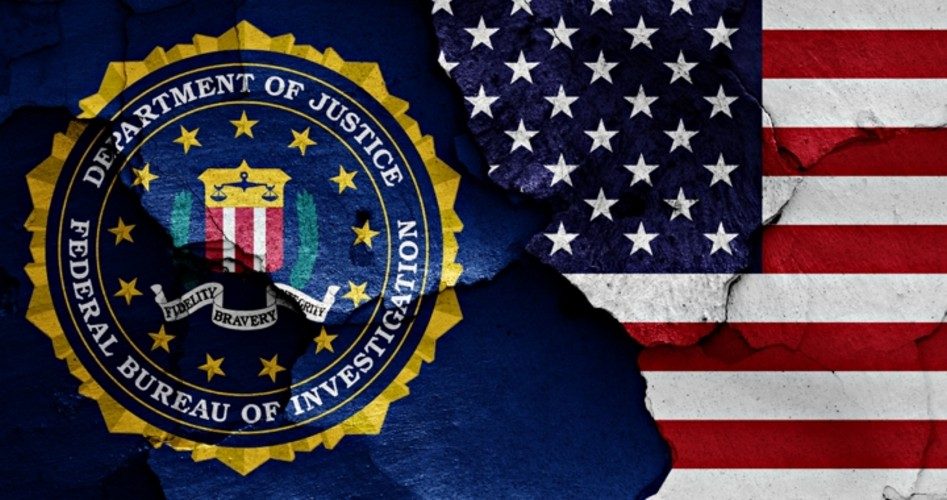
In the midst of the ongoing strategy of delay and obstruction on the part of Deep State operatives in the Department of Justice (DOJ) and FBI — which bent rules well past the breaking point to keep the House Intelligence Committee in the dark about facts relevant to its investigation of DOJ and FBI handling of alleged Trump/Russia collusion — the other shoe has finally dropped. It appears the FBI had a spy in the Trump campaign.
As The New American reported Monday, House Intelligence Committee Chairman Devin Nunes — tired of being “stalled” and “stonewalled” — threatened Attorney General Jeff Sessions with charges of contempt of Congress unless Sessions complied with a congressional subpoena to provide information on a “specific individual” in the investigation. That “specific individual” is a U.S. citizen who acted as a “source” for the FBI in its never-say-die investigation of alleged collusion between the Trump campaign and Russia. Both the DOJ and FBI had already pushed the boundaries one time too many for Nunes and he was ready to pull out the big guns to force compliance with the subpoena.
On Thursday, his efforts were richly rewarded: The DOJ briefed House Intelligence Committee members about their top-secret intelligence source. As the Wall Street Journal’s Kimberly Strassel wrote in an explosive op/ed piece Thursday, even with all of the stonewalling and smoke-and-mirror tactics, “House investigators nonetheless sniffed out a name” and the person that name belonged to was the “source” the DOJ and FBI were hell-bent on keeping the committee from learning more about. As Strassel wrote:
House investigators nonetheless sniffed out a name, and Mr. Nunes in recent weeks issued a letter and a subpoena demanding more details. Deputy Attorney General Rod Rosenstein’s response was to double down—accusing the House of “extortion” and delivering a speech in which he claimed that “declining to open the FBI’s files to review” is a constitutional “duty.” Justice asked the White House to back its stonewall. And it even began spinning that daddy of all superspook arguments—that revealing any detail about this particular asset could result in “loss of human lives.”
This is desperation, and it strongly suggests that whatever is in these files is going to prove very uncomfortable to the FBI.
The bureau already has some explaining to do. Thanks to the Washington Post’s unnamed law-enforcement leakers, we know Mr. Nunes’s request deals with a “top secret intelligence source” of the FBI and CIA, who is a U.S. citizen and who was involved in the Russia collusion probe. When government agencies refer to sources, they mean people who appear to be average citizens but use their profession or contacts to spy for the agency. Ergo, we might take this to mean that the FBI secretly had a person on the payroll who used his or her non-FBI credentials to interact in some capacity with the Trump campaign.
As Strassel correctly asserts in her article, since this would mean that the FBI had a spy inside the Trump campaign, it would “be a major escalation from the electronic surveillance we already knew about, which was bad enough.”
The obstruction, delay, and stonewalling continue, by the way. Though the DOJ — which has been playing a rousing game of cover-your-own-backside — did brief the committee about the “top-secret intelligence source,” it refused to allow the committee members to see the documents for themselves. Since this whole kerfuffle has been marked by one episode after another of dishonesty on the part of the DOJ and FBI (both of which have been shown to have been both covering for Clinton in the “investigations” of her crimes and conspiring against President Trump), prudence dictates that one doubt anything coming from their mouths unless it is verified by indisputable documentation.
Strassel ends her piece by writing:
I believe I know the name of the informant, but my intelligence sources did not provide it to me and refuse to confirm it. It would therefore be irresponsible to publish it. But what is clear is that we’ve barely scratched the surface of the FBI’s 2016 behavior, and the country will never get the straight story until President Trump moves to declassify everything possible. It’s time to rip off the Band-Aid.
While Strassel is unwilling — because of her journalistic integrity — to name the informant whose name she believes she knows, it is almost certain that others will do the same digging she has done and the name will likely soon be known.
And when it is known, it’s going to be a bad day for the DOJ and FBI.
Photo: Racide/iStock/Getty Images Plus


